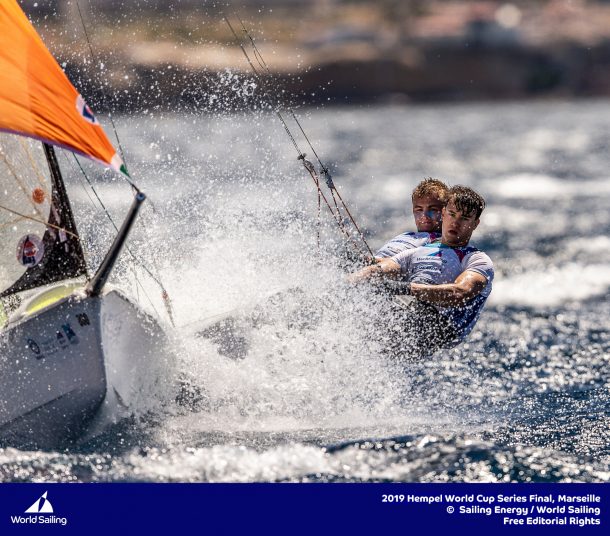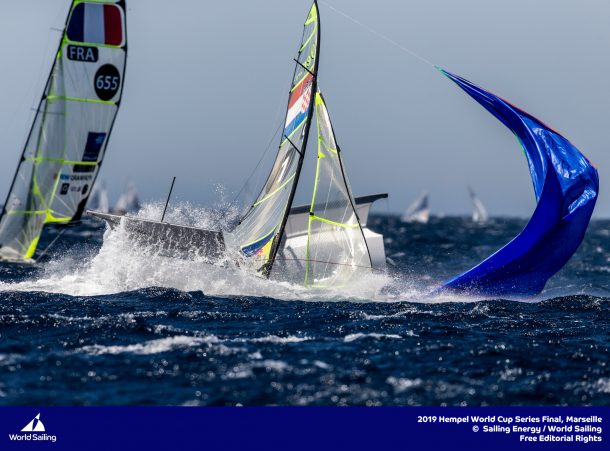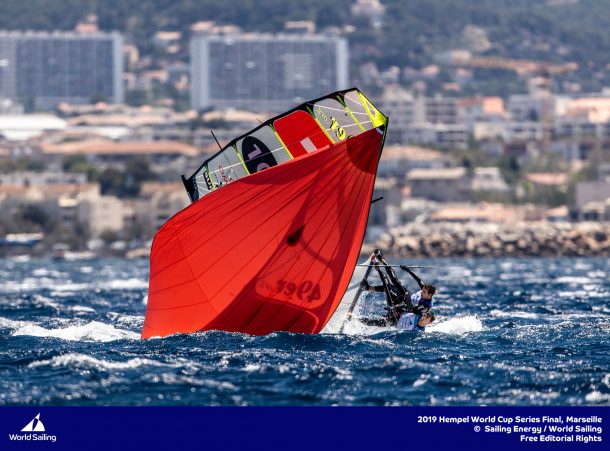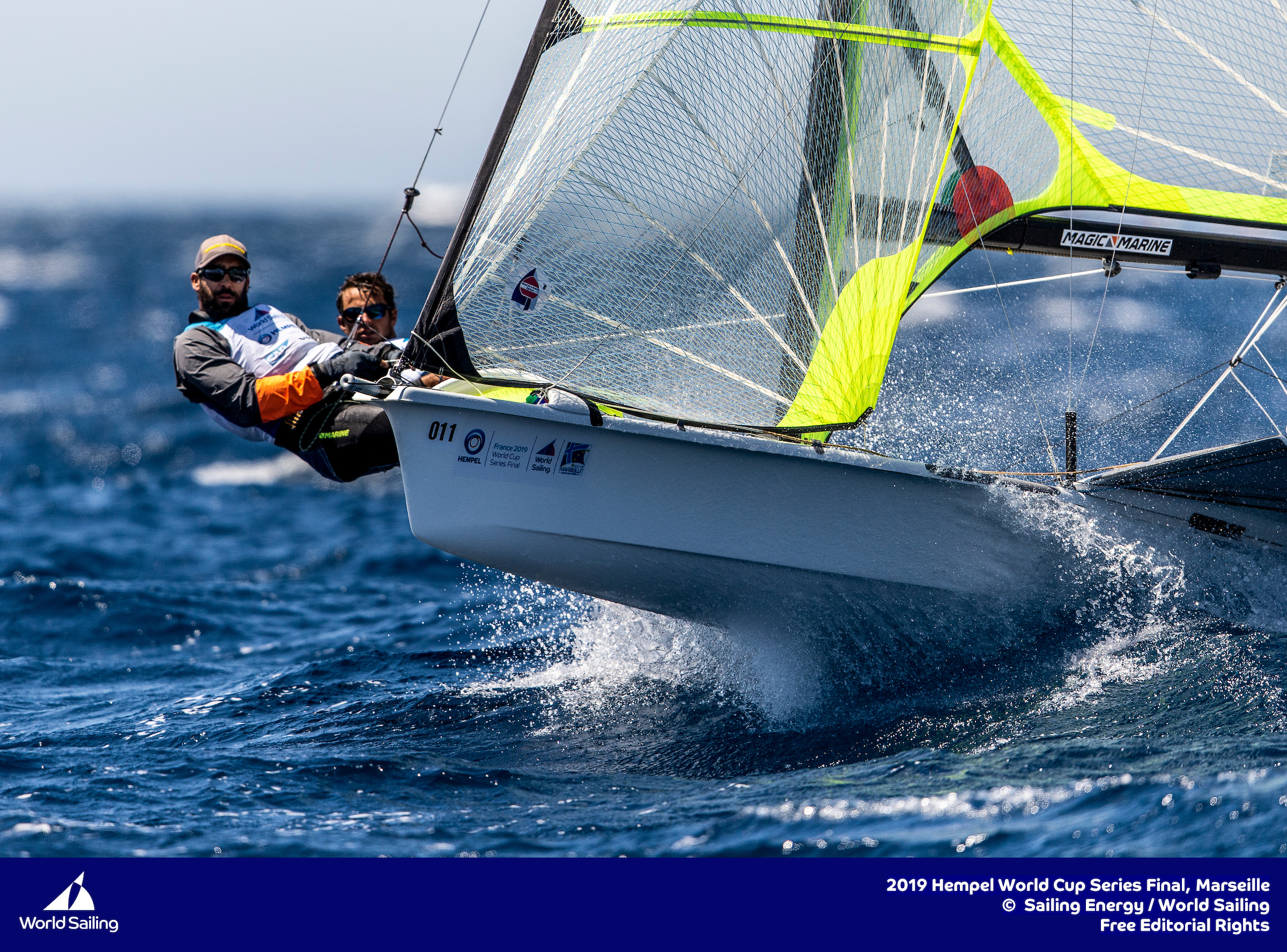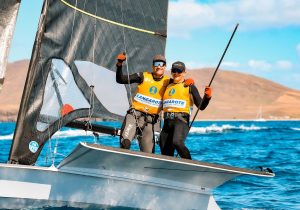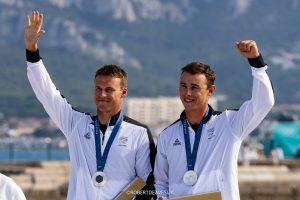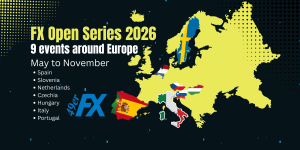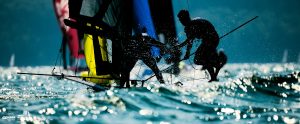Sailors racing at the Hempel World Cup Series Final in Marseille, France needed to use all the strength and fitness they could find with strong winds bringing the second day to an early close.
Gusts well in excess of 30 knots were reported across the five racing areas. Only a small number of races for the sailors from 41 nations racing across the ten Olympic events and Open Kiteboarding were completed as the wind speed was deemed unsafe for competition. The Principal Race Officer brought the sailors back to the shore with proceedings cancelled at 15:00 local time.
The 49er completed a single race in a breeze that started at 20 knots and quickly rose to 25 knots with stronger gusts. Of the 14-boats in the fleet, only four of them completed the race with capsizes aplenty on the race track.
Federico and Arturo Alonso, brothers from Spain, focused on doing the simple things well on the race track and not overcomplicating their processes which resulted in them claiming the race win. They are now one point off the leaders, Kévin Fischer and Yann Jauvin (FRA), who finished second in the race. The seventh placed Swiss team of Sebastien Schneiter and Lucien Cujean came through in third and Italy’s Uberto Crivelli Visconti and Gianmarco Togni came through in fourth.
No other team were able to complete the race with capsizes and boat damage halting their progress.
“I think it was really close to the limit for the 49er class. You can see that in results and around the boat park,” said Federico looking around at the rest of the fleet assessing their boats for any damage sustained.
“It was really difficult for us today but it is part of the game and everyone had to deal with it. We had some scary moments. It’s a good, small fleet so there were no major incidents but we were on the edge at some points.
“It was quite difficult to sail in a straight line. At the leeward marks it was really choppy so it was difficult to gybe. We just tried to make things easy for ourselves and not take any risks. We didn’t capsize and we managed to win the race.
“We think the gusts were close to 30 knots. They were really strong.”
With such strong breeze playing out across the entire field of play, boat handling and strength was the key to success. Alonso continued, “You can see some sailors that aren’t as strong or tall but they sail the boat well so that can help but you have to be strong and keep calm. If you get stressed it’s easy to capsize or have contact with another boat. You have to minimalise the risks.
“You have to do everything you can to make things easy for yourself. Boat handling is crucial and it’s down to the experience of the team.”
The French lead on five points followed by the Spaniards on six. Crivello Visconti and Togni are third on 11 points.
The 49erFX fleet started a race but this was later abandoned due to the strong breeze.
Day 2 racing was in start contrast to day 1, where a variable 7-12 knot south easterly breeze, completed every scheduled race on the opening day. In some fleets, there were some exceptional individual performances whilst in others, consistency was scarce at the early stage of the event.
No teams were consistent in the skiff fleets, with scores a scramble. With big difference in wind strength and bigger differences in angle it was tough to know what the day meant in the bigger picture.
The Marseilles venue is going to give a lot of team managers sleepless nights from now through 2024. No entity in sailing likes to have control and certainty more than those accountable for a teams performance to funding backers.
Looking forward to Paris 2024, one would be hard pressed to know which type of sailing will be rewarded? Light air performance, with tons of patience and concentration while waiting? Heavy wind stability and survivalist instincts, to make it around the course in max wind conditions? Will the race officers push the light wind limits or the heavy wind limits? Which specialists will get more races in the series? How desperate will race teams get if there have been a few days without racing due to too much or too little wind?
As a sport we’re going to see many more race reports like the one above for the next 5 years. As one development coach said, “at least when you’re capsizing in Marseille, the water is warm and it’s beautiful around.”
